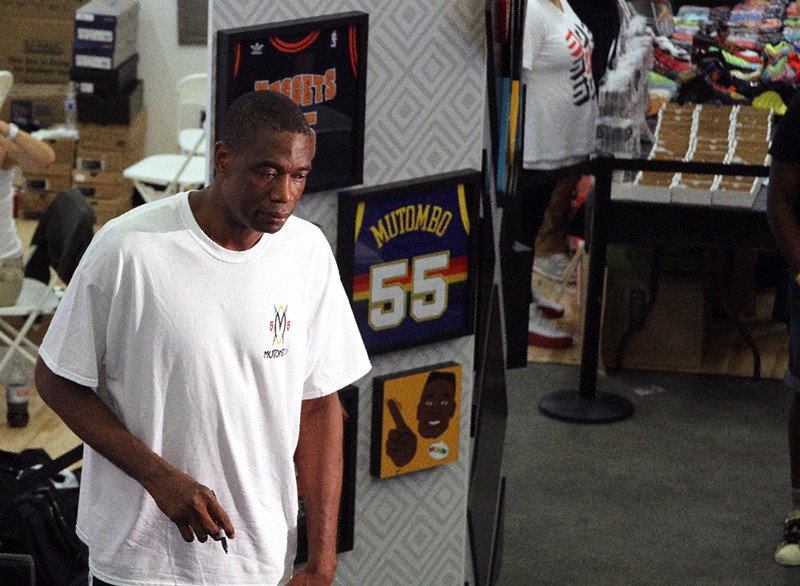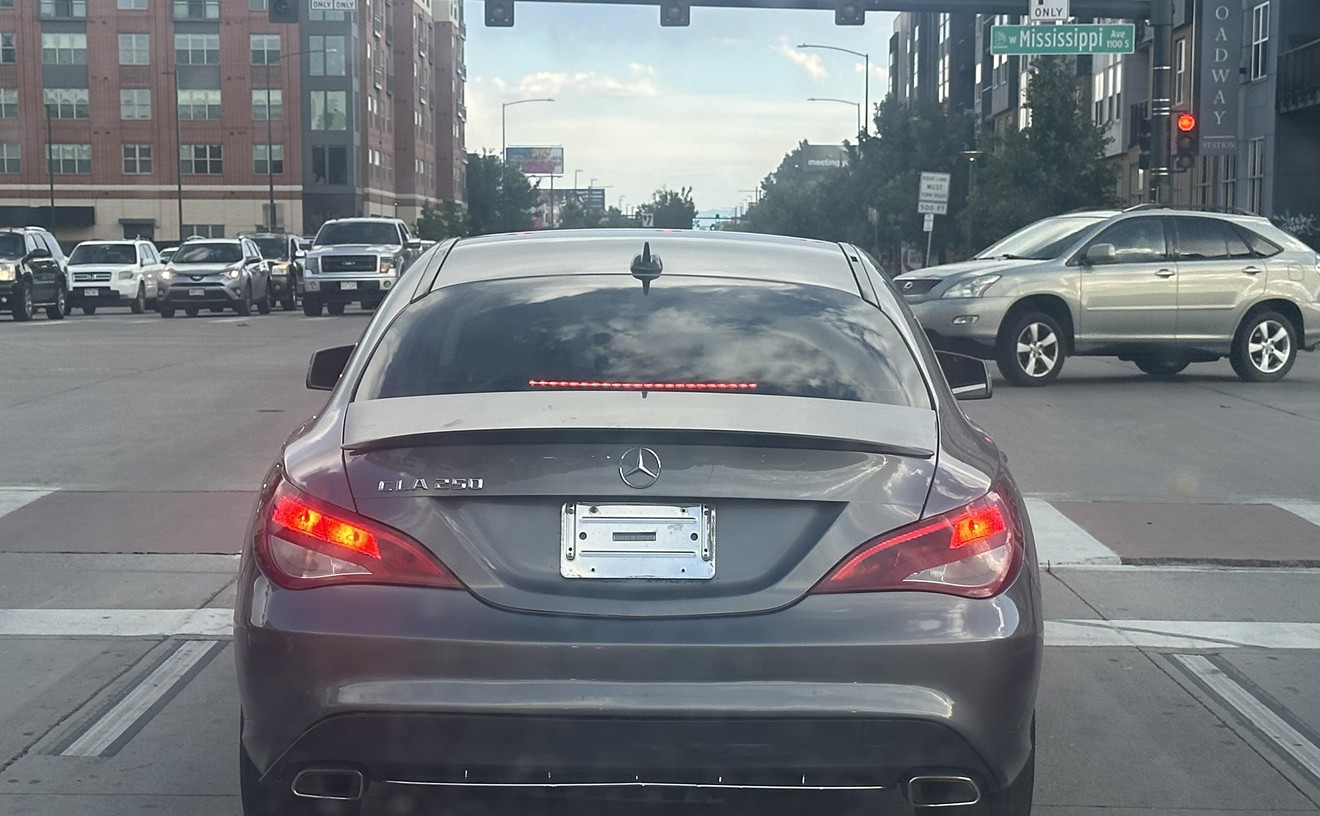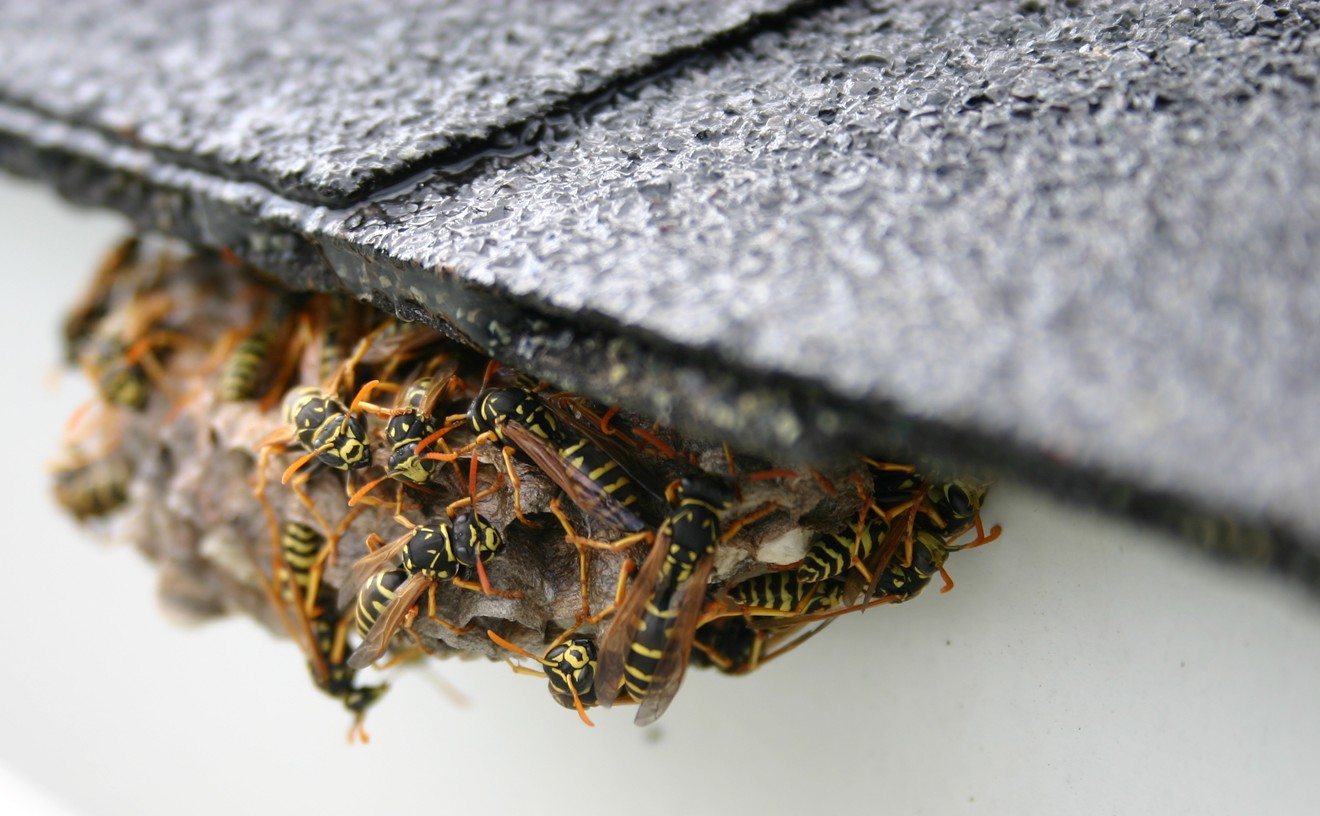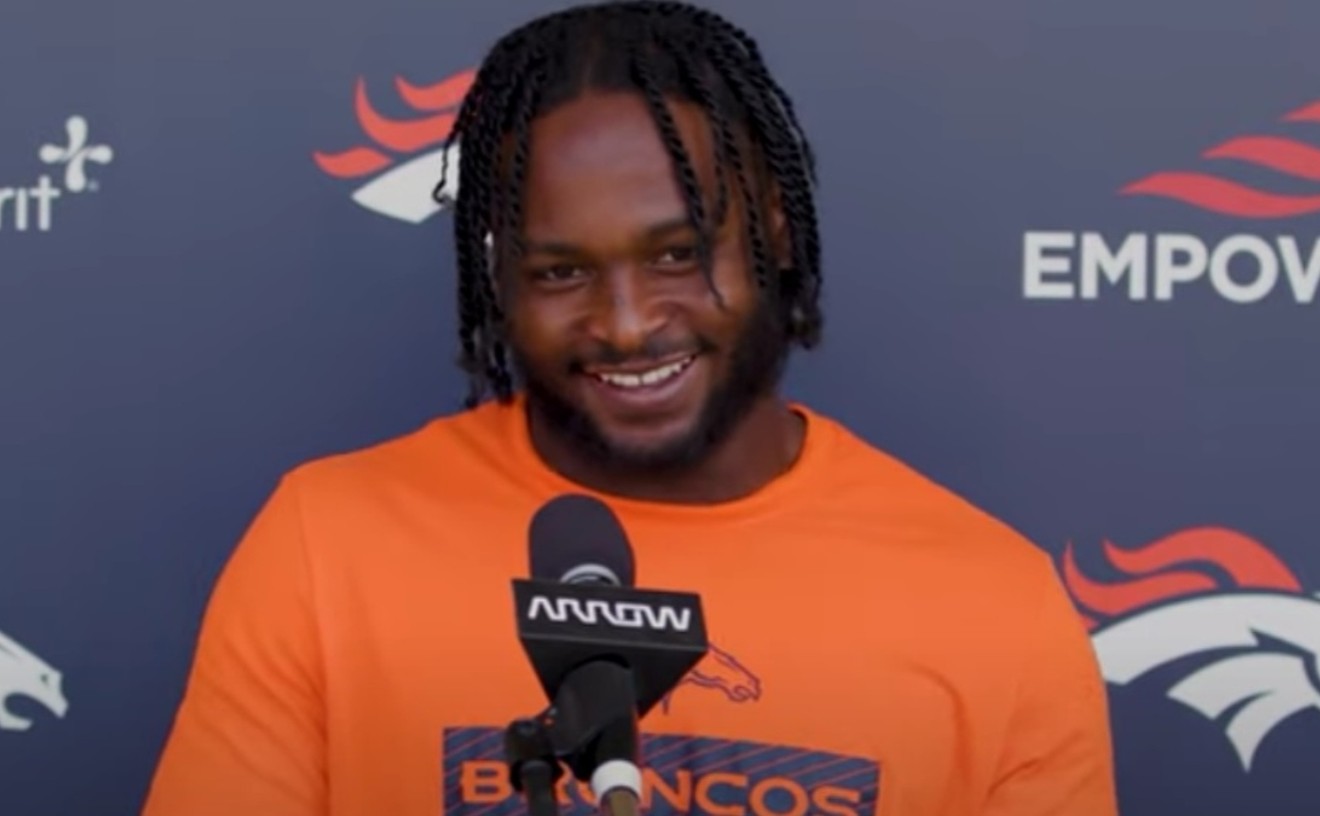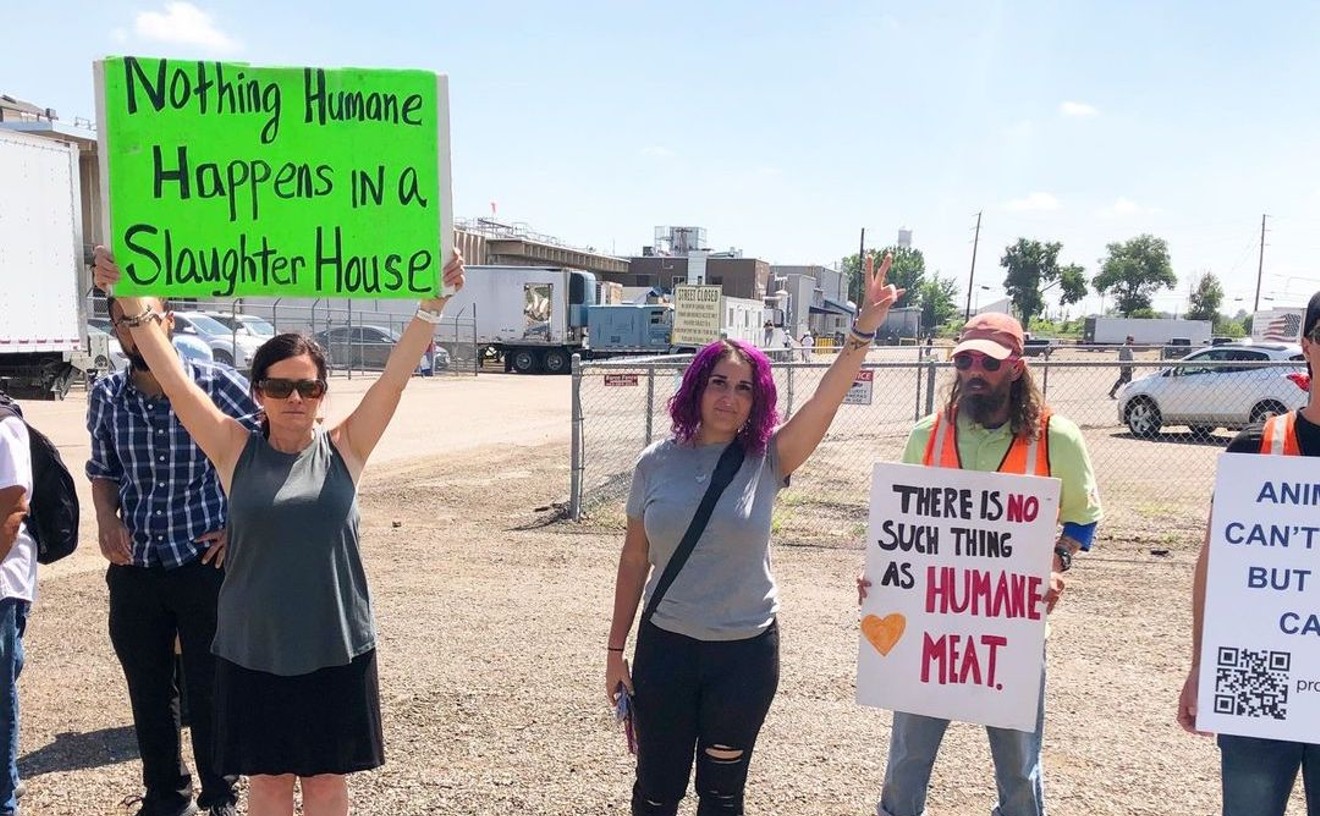And if you grew up playing basketball in the '90s, chances are you said "Not in my house!" with a finger wag afterward— especially in Denver, where Dikembe Mutombo started his professional career and was an integral part of one of the biggest upsets ever in the NBA playoffs.
Watching the 7'3" ball hawk fly over from the weak side and swat away one of 3,289 blocks (3,540 if you count the playoffs) proved that defensive players could become marketable stars, too. Years after his retirement, Mutombo was still appearing in national TV ads, making us laugh with his catchphrase.
It's ironic that Mutombo's career was built on rejection, though, because he was an example of embracing humanity.
Mutombo, who passed away on September 30 from brain cancer at 58, was famous for prowling the paint for blocks and rebounds for nineteen seasons in the NBA. But the four-time defensive player of the year also donated tens of millions of his earnings toward charitable causes, including the building of a hospital in his home country, now called the Democratic Republic of the Congo.
Mutombo adopted four children of his deceased in-laws, spent countless hours at basketball clinics across Africa, sponsored and paid for African athletes to represent their countries in international competitions, and founded and served on a handful of organizations that promoted education and access to health care, as well. In 2007, he was singled out and honored by former President George W. Bush for becoming a United States citizen.
That's more of an example than a summarization, because Mutombo's humanitarian efforts were vast, sustained and often done without pursuing clickbait headlines.
But let's not forget how much fun Mutombo was to watch and read about, either.
Mutombo played five seasons in Denver, averaging 16.6 points, 12.3 rebounds and nearly three blocks per game as a rookie. In 1994, Mutombo and the Nuggets became the first eight-seed to beat a one-seed in the NBA playoffs after winning three straight games against the Seattle Supersonics, cementing his legacy as a Nugget.
After beating the Sonics, Mutombo laid under the basket, clutching the ball in his outstretched arms in what has become one of the most memorable moments in Nuggets and NBA history.
He was also allegedly responsible for one of the funniest lines in strip club history. According to fellow Georgetown University alumn Alonzo Mourning, the center used to scream "Who wants to sex Mutombo?" upon entering certain night clubs.
"That was his pickup line," Mourning told Dan LeBatard on ESPN. "And it worked."
After Denver, Mutombo made meaningful stops in Atlanta and Philadelphia, where he won an Eastern Conference title playing alongside Allen Iverson, and even in Houston, where he played well into his forties.
Mutombo's Life in Denver
In 1996, Mutombo invited a camera crew into his house for an MTV Cribs-style documentary segment in which he provides a tour around his newly built abode, which looks like it sits on a sparsely populated street in a newly built subdivision.That subdivision, located south of the city based on his drive along Interstate 25 to practice, is probably full of houses now, but the home was customized with extremely tall and long cabinets, if you know of anyone who needs to use a ladder to grab a drinking glass.
Mutombo makes oatmeal, showcases his ability to change a lightbulb while flat on his feet, and plays fetch with his dog in the snow before driving his van to practice.
"Here when you live in Denver, make sure you have your coat in the back of your truck, because you don't know when it's coming," he says. "Nobody knows. Only god."
Later in the day, Mutombo visits Pasta Pasta Pasta for lunch, which he praises as his favorite place to eat in Denver. Pasta Pasta Pasta closed in 2020 after 36 years in Cherry Creek.
Mutombo was reigning Defensive Player of the Year when the camera crew followed him around. The Nuggets and then-general manager Bernie Bickerstaff chose not to re-sign him that summer, however, so Mutombo left to play for the Atlanta Hawks, where he won two more DPOY trophies and helped lead the Hawks to fifty wins in consecutive seasons.
Nearly twenty years later, shortly after Mutombo's induction into the Naismith Memorial Basketball Hall of Fame in 2015, Bickerstaff spoke of his regret in letting Mutombo walk.
"That’s something we should have done," he told the Denver Post of the ten-year, $55 million deal Mutombo signed with Atlanta in the summer of 1996. "That was a terrific deal when you start talking about the present value of money...because Mutombo, he wanted to stay."
We wish he could have stayed a little longer, too.

